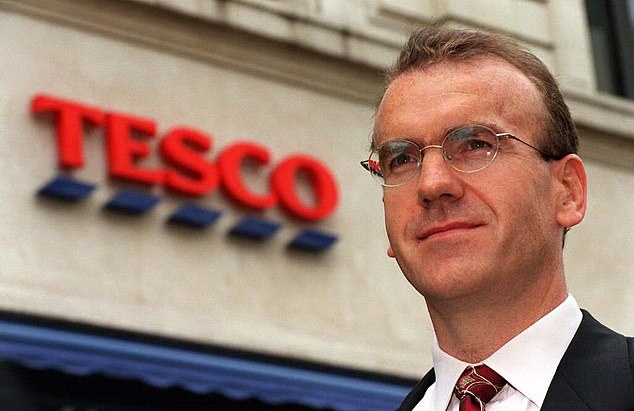Terry Leahy, the former CEO of Tesco. Terry Leahy is widely credited with transforming Tesco from a struggling UK supermarket chain into one of the world’s largest retailers. Here are a few key strategies he implemented:
- Customer focus: Leahy put a strong emphasis on understanding and meeting the needs of Tesco’s customers. He made it a priority to gather data about customer behavior and preferences, and used that information to tailor Tesco’s offerings to specific markets. For example, Tesco introduced “Clubcard,” a loyalty program that offered personalized discounts and rewards to customers based on their shopping habits.
- International expansion: Under Leahy’s leadership, Tesco expanded aggressively into international markets, including Asia, Europe, and the United States. This helped the company diversify its revenue streams and mitigate risk from a possible downturn in the UK market.
- Private label products: Leahy also made a significant investment in developing Tesco’s private label products, which are items sold under the Tesco brand. These products often have higher profit margins than name-brand products, and they allow Tesco to differentiate itself from competitors.
- Technology: Leahy was an early adopter of technology in retail, investing heavily in Tesco’s online shopping platform and supply chain systems. This helped Tesco streamline its operations and improve efficiency.
- Cost control: Finally, Leahy was known for his focus on cost control and efficiency. He introduced lean manufacturing principles and made significant changes to Tesco’s supply chain to reduce waste and improve productivity.
Over the past 30 years, the UK supermarket industry has undergone significant changes in response to shifting consumer trends, advances in technology, and increased competition. Here are a few key developments that have shaped the industry:
- Emergence of discounters: In the 1990s, German discounters Aldi and Lidl entered the UK market, offering lower prices than established retailers like Tesco and Sainsbury’s. These discounters have since grown rapidly and now account for a significant share of the UK grocery market.
- Expansion into non-food categories: Supermarkets have expanded beyond food and drink to offer a wide range of non-food products, such as clothing, electronics, and household goods. This has been driven in part by the rise of online shopping, which has made it easier for supermarkets to diversify their offerings.
- Focus on convenience: In recent years, there has been a growing demand for convenience and quick meals among UK consumers. Supermarkets have responded by increasing their offerings of ready-to-eat meals, snacks, and on-the-go products.
- Online shopping: The rise of online shopping has been a significant development in the UK supermarket industry over the past 30 years. Most major supermarkets now offer online shopping and home delivery services, which have become increasingly popular in recent years.
- Sustainability and ethical concerns: There has been a growing awareness of sustainability and ethical issues among UK consumers, such as plastic waste, animal welfare, and fair labor practices. Supermarkets have responded by introducing a range of initiatives, such as reducing plastic packaging, sourcing more sustainable products, and implementing stricter animal welfare standards.
Overall, the UK supermarket industry has evolved significantly over the past 30 years in response to changing consumer trends and increased competition. The industry is likely to continue to evolve in the coming years as supermarkets adapt to new technologies and changing consumer preferences.



